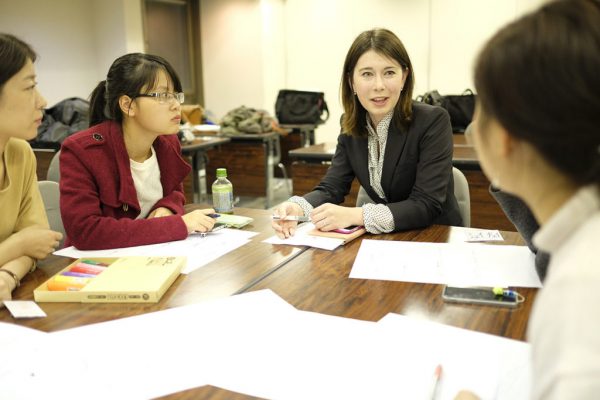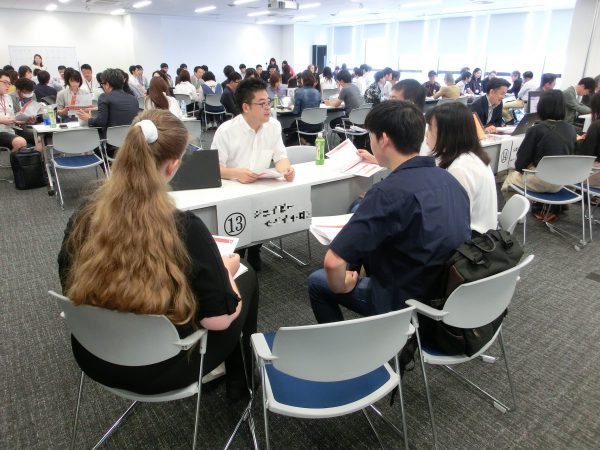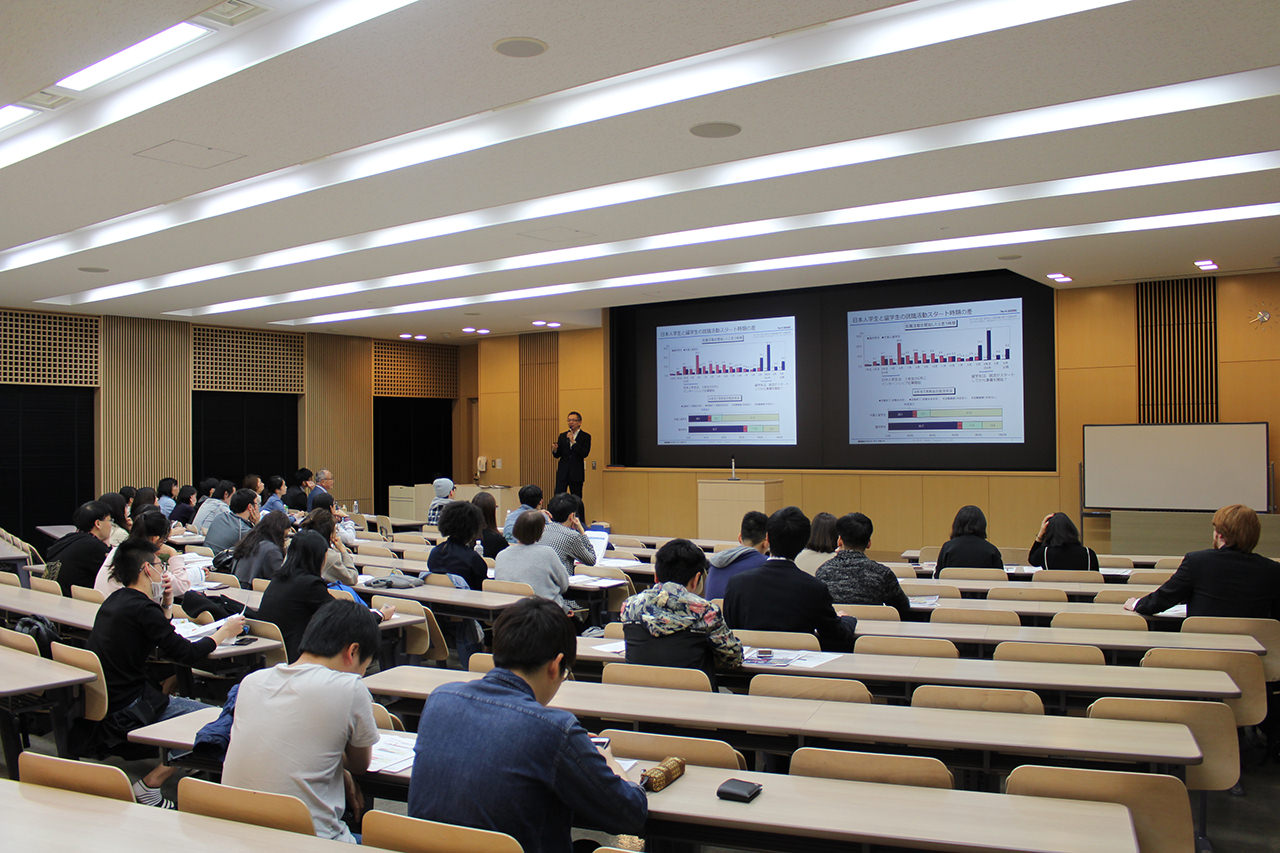What careers do international students in Japan aim for?
2021.03.10

What types of careers do students studying in Japan—or those thinking about studying abroad in Japan—aim for?
For this article, we asked a number of international students about the fields they hope to work in. We hope it’ll help to give you some ideas.
The students also filled us in on the support they found for their job search, and some useful web services they used!
Let’s meet the students
Six members of the Study Kyoto PR Team participated in the interview:
Cahaya (Kyoto University, Graduate School of Asian and African area Studies)
Pam (Kyoto Institute of Technology, Graduate School of Design)
Ain (Doshisha University, The Institute for the Liberal Arts)
Katrina (Doshisha University, Faculty of Psychology)
Soomin (Doshisha University, Faculty of Global Communications)
Wang (Kyoto University of the Arts, Faculty of Art & Design)
Q: Is there a field you’d like to work in in the future? If so, please tell us why.
Cahaya: “The tourism industry, because I don’t like to work in a small, limited space. I want to do a job that lets me move around, interact, and meet new people.”
Pam: “Design, language or education, tourism, or cultural exchange [are areas that interest me]. Design because it’s my major. Language and education because I like both learning and teaching languages. I think it could be fun to run a class like that. As for tourism and cultural exchange, I think that would be my dream job.”
Ain: “I don’t really have a particular industry that I’m aiming for yet, but I’d really like to work at a foreign company, especially a Japanese-Vietnamese company, if possible. If I worked at a foreign company, I think it would be helpful to have not only Japanese skills, but English, too. I also think the work style of foreign companies is well-suited to non-Japanese people.”
Katrina: “I focused my job search on BtoB (short for “business to business,” or companies that work with or create products for other companies, rather than individual consumers/the public) manufacturing companies in the Kansai area, and I accepted an offer from one of them. I really like the Kansai area, and I wanted the trusty Japanese products made by BtoB manufacturers to be widely known and used, so I was really pleased.”
Soomin: “I’m aiming for a job in interpretation/translation. I want to work somewhere where I can use the Japanese I’ve learned through my studies abroad as a specialist.”
Wang: “I’d like to be an art director in the advertising industry: I would feel such a huge sense of accomplishment and satisfaction if I saw my work in the middle of town. I think I would really be able to feel the significance of my work.”
It seems like everyone is dreaming of a different type of career. Is there a particular industry that’s popular amongst international students? Let’s ask.

Fields that students are interested in
Q: Is there a particular field or industry that’s popular amongst international students? If you think the answer simply depends on the individual, please tell us what fields the students around you are interested in.
Cahaya: “The international students I know are interested in a number of different things. They all have different majors and specializations. But I think that overall, there’s a tendency for international students to choose companies that have good work-life balance, and language support.”
Ain: “My friends and upperclassmen have told me they want to work in IT.”
Katrina: “There are students interested in the tourism industry, of course, as well as famous manufacturers, and all different kinds of industries.”
Soomin: “Airline and tourism companies are popular.”
It seems it varies quite a bit, depending on the individual, but work-life balance is an especially important point for many international students. We heard in a previous interview that the IT industry was easier for international students to find work in.
The SPI Test & Other Written Tests for Job Hunting in Japan: Advice from an International Student
Q: What kind of paths have international students that graduated ahead of you chosen?
Cahaya: “There are people who went to work at Japanese companies, people who joined foreign companies, people who joined universities or public institutions as researchers, and people who work at private institutions, too.”
Pam: “Some went to work at design companies.”
Katrina: “It varies: graduate school, consulting companies, researchers at manufacturing companies, HR at manufacturing companies, overseas sales at manufacturing companies, bridal companies, and some who went back to their home countries.”
Soomin: “There are people who went on to study in graduate school, went back to their home countries, and others who took jobs in the tourism industry.”
Previous graduates seem to have chosen a variety of different industries to work in as well, but they too, seem to make a choice based on what they’ve chosen to study. Have the students we’ve interviewed this time chosen their field of study with a future career in mind, too?

Q: Is there a connection between what you’re studying now and the career you’d like to have in the future? If so, please tell us about that connection.
Cahaya: “I think they are related. Right now, I’m studying trends in tourism from Indonesia to Japan, and I think my research gives me a more multifaceted, deeper understanding of the tourism industry.”
Pam: “I’m working towards a PhD in order to apply for a university job in my home country.”
Ain: “What I’m studying at university is useful for work related to international exchange and culture. I think language skills should help me, too.”
Katrina: “When I start work, I’ll be working in HR, but through studying psychology at university, I’ve learned so many disciplines of psychology—psychology of industrial organizations, environmental psychology, educational psychology, and so on, so I think I’ll be able to put them to use in a job in HR.”
Soomin: “I want to work in translation/interpretation, so my classes in Japanese itself (pronunciation, intonation, etc.), and my classes in Korean and Japanese, with translation/interpretation from native speakers of both languages are especially relevant, I think.”
Wang: “In my department, I learned about how to spread information in the world through design, and how to solve societal problems with design. In the Department of Informational Design, I’m mainly studying advertising video, and my aim is to become an art director in the advertising industry.”











